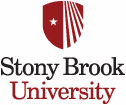
Spring 2019
Syllabus
Syllabus
About this course: The goal of this course is to develop the student's mathematical thinking and his ability to manipulate various concepts via the study of concrete, modern applications.
We will encounter the mathematics involved in determining the result of an election, in finding the shortest paths on graphs, problems revolving around population growth and probability.
The following topics will be covered:
- Mathematics behind voting
- Mathematics behind fair sharing
- Network, graphs
- Population growth
- Probability
- Fibonacci numbers and the golden ratio
Material
Excursions in Modern Mathematics by Peter Tannenbaum, 8th edition.
The textbook is available at the campus bookstore. It is recommended that the students try to read the text
before lecture and after the lecture, in order to greatly increase their comprehension (during the lectures, I will cover other examples, mostly taken from the exercice section, than the one treated in the book).
Instructor
| Nguyen-Bac Dang | |
| Nguyen-Bac.Dang@stonybrook.edu | |
| Office | Math tower 3-118 |
| Lectures | Monday, Wednesday, Friday: from 9am to 9:53am in Library W4550 |
| Office hours | Wednesday 10:00am-12:00pm in Math building 3-118 Monday 10:00am-11:00pm (in MLC Math Tower S-235) |
Recitations
| Recitation number | Schedule | Room | Teaching assistant |
|---|---|---|---|
| R01 | Monday 2:30pm- 3:23pm | Physics P116 | Frederik Benirschke |
| R02 | Wednesday 1:00pm- 1:53pm | Physics P116 | Jacob Mazor |
Prerequisites
C or better in MAP 103 or level 2+ or higher on the mathematics placement examination (Prerequisite must be met within one year of beginning this course.)
Homework
Every week, the student will be assigned 3 exercices for homework, taken from the book. No late homework will be accepted. The schedule of the homework will be available on blackboard and on the course website
Exams
- Midterm 1: 03/01/19 (in class)
- Midterm 2: 04/10/19 (in class)
- Final exam: Wednesday May 22, 8:00am-10:45am
Grading scheme
- Homework: 25%
- Each Midterm: 20%
- Final exam: 35%
Disability Support Services (DSS) Statement
If you have a physical, psychological, medical or learning disability that may impact your course work, please contact Disability Support Services, ECC (Educational Communications Center) Building, room 128, (631) 632-6748. They will determine with you what accommodations, if any, are necessary and appropriate. All information and documentation is confidential. Students who require assistance during emergency evacuation are encouraged to discuss their needs with their professors and Disability Support Services. For procedures and information go to the following website: http://www.stonybrook.edu/ehs/fire/disabilities.
Academic Integrity Statement
Each student must pursue his or her academic goals honestly and be personally accountable for all submitted work. Representing another person’s work as your own is always wrong. Faculty are required to report any suspected instances of academic dishonesty to the Academic Judiciary. Faculty in the Health Sciences Center (School of Health Technology & Management, Nursing, Social Welfare, Dental Medicine) and School of Medicine are required to follow their school-specific procedures. For more comprehensive information on academic integrity, including categories of academic dishonesty, please refer to the academic judiciary website at http://www.stonybrook.edu/commcms/academicint egrity/index.html.
Critical Incident Management Statement
Stony Brook University expects students to respect the rights, privileges, and property of other people. Faculty are required to report to the Office of Judicial Affairs any disruptive behavior that interrupts their ability to teach, compromises the safety of the learning environment, or inhibits students’ ability to learn. Faculty in the HSC Schools and the School of Medicine are required to follow their school-specific procedures.
Conduct
Stony Brook University expects students to maintain standards of personal integrity that are in harmony with the educational goals of the institution; to observe national, state, and local laws and University regulations; and to respect the rights, privileges, and property of other people.